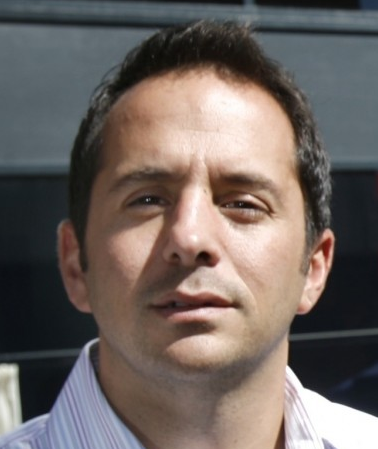Moore: Unlike RI, Puerto Rico Takes on Ratings Agencies
Monday, January 11, 2016
The big reason Rhode Islanders are given for the fact that they have to pay for the potentially fraudulent 38 studios bonds, is that failing to do so could hurt the state’s bond rating.
Both Governor Gina Raimondo and House Speaker Nicholas Mattiello have attempted to argue, not without success, that if the state of Rhode Island were to decline to pay the 38 Studios bonds, which it is not even legally obligated to do, the state would be punished by the mighty ratings agencies. That would, in turn, cost Rhode Island more in the long run, due to increased borrowing costs.
But if you buy that reasoning, you should consider yourself gullible. The logic is based on the premise that the ratings agencies, chiefly Moody’s and Standard & Poor’s, are these highly respected institutions that bond buyers rely upon. The premise couldn’t be further from the truth.
GET THE LATEST BREAKING NEWS HERE -- SIGN UP FOR GOLOCAL FREE DAILY EBLASTSavvy lenders understand that the opinions of the major ratings agencies are to be taken with a grain of salt, and instead employ their own researchers. Even if the ratings agencies were to try and bully Rhode Island, the state would still get decent borrowing rates from lenders. And does anyone really think the Governor actually cares about our bond rating given the fact that she is poised to add another billion in debt to the state?
Bad Reputations
While the ratings agencies already have poor reputations, this last week, in particular, was a particularly bad week in the national press for the ratings agencies. First, the New York Times came out with a scathing article, which asserted that the ratings agencies haven’t made significant reforms to stem the problems that led to their role in the financial crisis of 2008.
Who can forget the fact that the major ratings agencies rated the mortgage backed securities, which really weren’t worth the paper they were printed on, very highly? The New York Times article, written by Gretchen Morgensen, points out that according to a new SEC report, the ratings agencies are taking part in many of the same practices that helped cause The Great Recession.
“Eight years after these companies were found to have put profits ahead of principle when they assigned high grades to low-quality debt securities, some of the same dubious practices continue to infect their operations,” the article states.
Same Issues Remain
As the article explains, the bond issuers pay the ratings agencies to rate their bonds. In typical fashion, it’s almost always a case of consultants telling their clients what they want to hear. If that’s not a conflict of interest, than there is no such thing as a conflict of interest.
And when things go wrong, the rating agencies, in their own defense, state that their ratings are just opinions—no different than the editorial pages of a newspaper. To an extent, they’re right. It’s the market, what people are willing to charge the states and companies in order to loan them money, which sets the actual bond rates.
But to listen to Raimondo or Mattiello, one would think that the ratings agencies are all powerful. Due to their might, they said, we had to pay the 38 studios bonds even though we don’t actually owe the money.
Political Spin
Not all politicians spin things that way. Instead of bowing down to the agencies, like Raimondo does, Alejandro Garcia Padilla, The Governor of Puerto Rico, took aim at the ratings agencies, according to an article published in the Spanish Language publication ElNeuvodia.com, by Nydia Bauza. (Now, the major ratings agencies are seeking to inflict pain on Puerto Rico, which is struggling under a massive debt crisis.)
"Where were they when Puerto Rico took the money without being able to pay? Where was Moody's? Where was Standard & Poor's and Fitch…? They were in the attitude that led to the bankruptcy of Enron, fraud Lehman Brothers: looking away and now want to be rude to Puerto Rico, when all these bond issues, which were made…” (Translated to English)
Where’s the Courage?
The same type of malfeasance was done to Rhode Island in order to make the 38 Studios Fiasco a reality. The bond ratings agencies rated the 38 Studios bonds highly, likely in an attempt to make them attractive to investors. It worked.
The rest is history. Of course the ratings agencies didn’t want to see the bonds not get paid. All that would do would be to draw attention to another colossal mistake by the agencies.
If Rhode Islanders were well served, the bonds wouldn’t have been paid just to cower to the ratings agencies, or to satisfy wealthy Wall Street types, or to prevent a real investigation into what actually happened.
The time has come for Rhode Islanders to demand real answers as to what brought forth the 38 studios nightmare, and stop accepting half baked explanations as to why we need to pay the debt.
Russell Moore has worked on both sides of the desk in Rhode Island media, both for newspapers and on political campaigns. Send him email at [email protected]. Follow him on twitter @russmoore713.
Related Slideshow: Who Should Be Subpoenaed in 38 Studios Hearings
See the seven that should be subpoenaed to testify on 38 Studios.
Related Articles
- Moore: Elorza, Firefighters Must Reach Settlement on Platoon Shift
- Moore: Statewide Teacher Contract Will Benefit RI
- Moore: Toll Plan Will Radically Restructure RI Borrowing
- Moore: RI is Too Poor To Bid For Pawsox
- Moore: Elorza’s Demotion of Fire Chief is a Head-Scratcher
- Moore: Relocation Expert Says RI Can Lure GE
- Moore: Rhode Island Needs a Holiday!
- Moore: End Providence Pension Spiking
- Moore: My RI Christmas Wish List
- Moore: Bring Back The Dancing Cop
- Moore: Fix the 6-10 Connector For Freedom’s Sake
- Moore: RI’s 38 Studios Economy Breeds Unfairness
- Moore: Speaker Mattiello Should Resign Over 38 Studios
- Moore: Projo Kept Public In the Dark on 38 Studios
- Moore: Senator Sheehan’s First Southwest Awakening
- Moore: Elorza’s Misguided Guatemalan Tour
- Moore: Forget GE, RI Can’t Even Retain Teespring
- Russell Moore: Attack of the Anti-Education-Reformers
- Moore: Fung’s Fiasco Shows Us To Distrust Party Affiliation
- Moore: Will Brookings Study Remember RI’s Forgotten People?
- Moore: Sounding the Alarm on Pension Fund Returns
- Moore: RI Has Bigger Ethics Issues Than Lally’s Job
- Moore: Let Procaccianti Build a Hotel on Fountain Street
- Moore: Was Chafee’s Presidential Bid Successful?


















